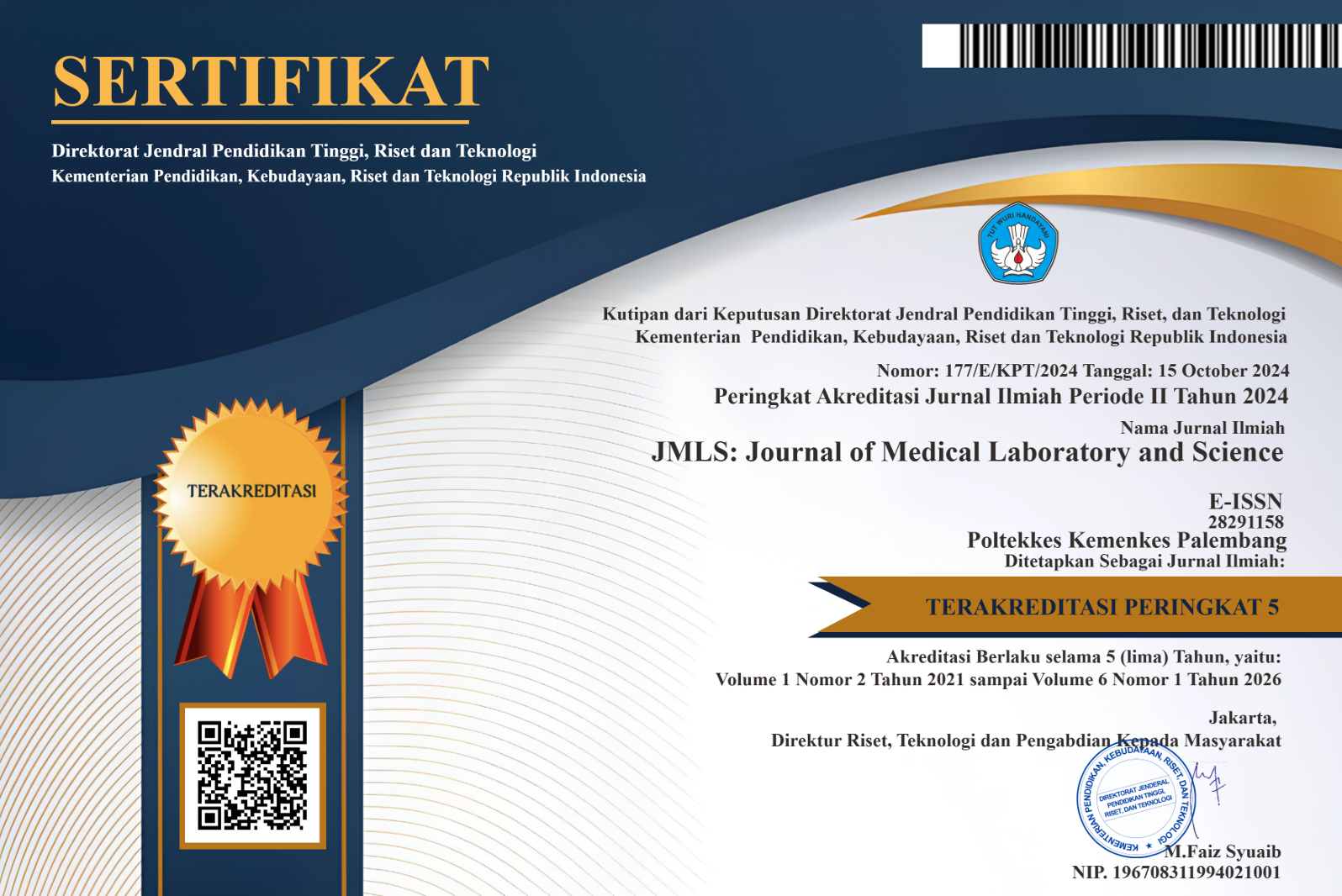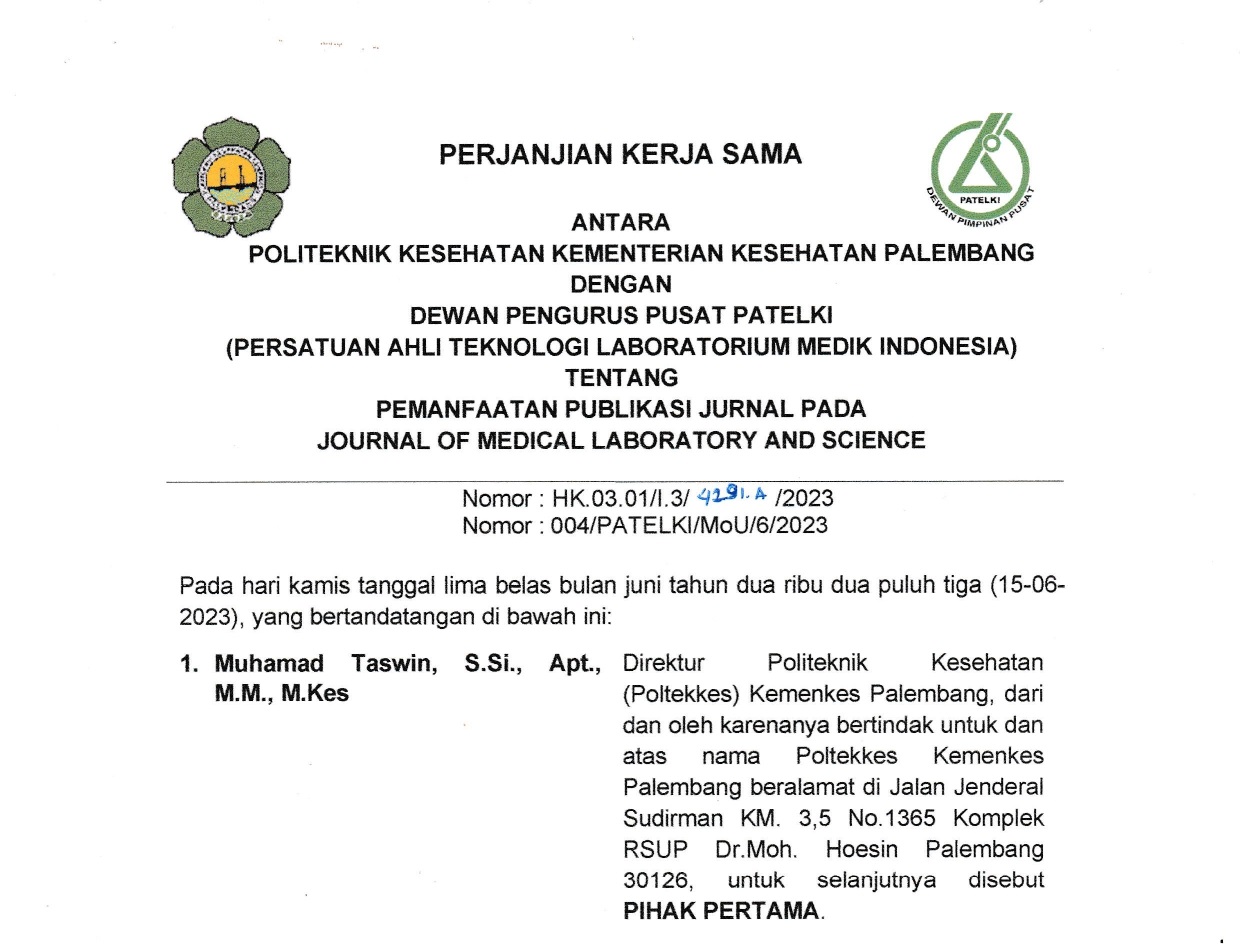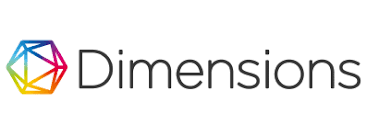ANALISIS KADAR GLUKOSA DARAH DENGAN TINGKAT STRES MAHASISWA TINGKAT 3 PROGRAM STUDI DIII TEKNOLOGI LABORATORIUM MEDIS POLTEKKES KEMENKES PALEMBANG
-
Abstract
ABSTRAK
Latar Belakang: Stres merupakan respon tidak spesifik tubuh karena adanya tuntutan yang melebihi kemampuan individu tersebut untuk memenuhinya. Saat stres, tubuh akan merespon dengan menstimulasi area hipotalamus untuk menghasilkan hormon epinefrin yang berfungsi untuk mengubah glikogen menjadi glukosa dan norepinefrin yang berfungsi untuk mencegah penurunan kadar glukosa darah. Kondisi stres yang terus berlangsung dapat mengakibatkan kadar glukosa meningkat sehingga dapat menimbulkan risiko hipertensi dan diabetes melitus. Tujuan penelitian ini adalah untuk mengetahui hubungan kadar glukosa darah dengan tingkat stres mahasiswa tingkat 3 Program Studi DIII Teknologi Laboratorium Medis (TLM) Poltekkes Kemenkes Palembang tahun 2021. Metode: penelitian ini bersifat analitik observasional dengan pendekatan cross sectional. Penelitian dilaksanakan pada tanggal 9 Februari 2021 di Kampus Jurusan TLM Poltekkes Kemenkes Palembang. Sampel penelitian berjumlah 40 orang yang dipilih berdasarkan kriteria inklusi dan eksklusi. Pemeriksaan kadar glukosa darah sewaktu menggunakan metode GOD-PAP dan pengukuran tingkat stres menggunakan kuesioner DASS-42. Hasil: rata-rata kadar glukosa darah dengan tingkat stres normal adalah 83 mg/dL, rata-rata kadar glukosa darah dengan tingkat stres ringan adalah 82 mg/dL, rata-rata kadar glukosa darah dengan tingkat stres sedang adalah 83 mg/dL, dan rata-rata kadar glukosa darah dengan tingkat stres berat adalah 81 mg/dL. Dari hasil uji Anova didapatkan nilai p-value = 0.98 atau > 0,05. Ini berarti bahwa tidak ada hubungan antara kadar glukosa dengan tingkat stres mahasiswa. Kesimpulan: tidak ada hubungan yang signifikan antara kadar glukosa darah dengan tingkat stres mahasiswa. Kata kunci : Glukosa darah, tingkat stres, mahasiswa
ABSTRACT
Background: Stress is a non-specific response of the body due to demands that exceed the individual's ability to fulfill them. When people get stressed, the body will respond by stimulating the hypothalamic area to produce the epinephrine which functions to convert glycogen into glucose and norepinephrine which functions to prevent a decrease in blood glucose levels. Continuous stress can cause glucose levels to increase so that it can increase the risk of hypertension and diabetes mellitus. The purpose of this study was to determine the relationship between blood glucose levels and stress levels on the third year students of the Medical Laboratory Technology (MLT), a three-year diploma program, Poltekkes Kemenkes Palembang in 2021. Methods: This research is an observational-analytic study with a cross-sectional approach. The research was carried out on February 9, 2021 at the MLT Campus, Palembang. The number of research sample was 40 students who were selected based on inclusion and exclusion criteria. The determination of blood glucose levels used the GOD-PAP method and the measurement of stress levels used the DASS-42 questionnaire. Results: the average blood glucose level with stress level of normal, mild, moderate, and severe were 83 mg/dL, 82 mg/dL, 83 mg/dL, and 81 mg/dL, respectively. From the results of the ANOVA test, the p-value = 0.98 or > 0.05. This means that there is no relationship between glucose levels and student stress levels. Conclusion: there is no significant relationship between blood glucose levels and stress levels of students. Keywords: Blood glucose, stress level, students
Copyright (c) 2021 Journal of Medical Laboratory and Science

This work is licensed under a Creative Commons Attribution-ShareAlike 4.0 International License.
Authors who publish with this journal agree to the following terms:
- Authors retain copyright and grant the journal right of first publication with the work simultaneously licensed under a Creative Commons Attribution License that allows others to share the work with an acknowledgement of the work's authorship and initial publication in this journal.
- Authors are able to enter into separate, additional contractual arrangements for the non-exclusive distribution of the journal's published version of the work (e.g., post it to an institutional repository or publish it in a book), with an acknowledgement of its initial publication in this journal.
- Authors are permitted and encouraged to post their work online (e.g., in institutional repositories or on their website) prior to and during the submission process, as it can lead to productive exchanges, as well as earlier and greater citation of published work














